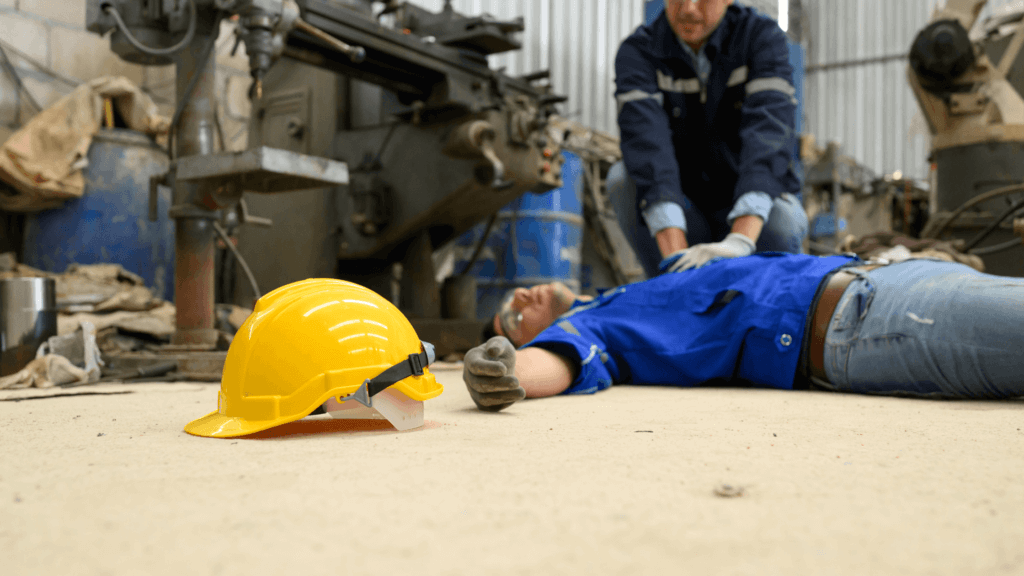Construction workers are used to early morning and late nights, but irregular shifts can lead to long-term health consequences. The adverse health effects of irregular, inconsistent, or long work shifts include increased stress, poor sleep, bad eating habits, and an increased risk of chronic diseases like diabetes, heart problems, and depression.
What is an irregular work schedule or shift?
In this context, an irregular work schedule refers to workers who do not have a set workweek schedule. Unlike office jobs, which may be a 9-5, jobs with shift work or irregular hours may have varying start and finish times in any given week.
Working all night shifts for months may also be considered an irregular work schedule since it disrupts natural sleep patterns, affecting day-to-day functioning and disease risk.
In construction, where many small sole-owner companies thrive, having an inconsistent work schedule is often par for the course. Many contractors lack solid organization skills and fly by the seat of their pants, working as hard and as long as needed if the occasion arises. That could mean working multiple back-to-back 14-hour days one week and less than full-time hours the next. Those long hours and the inconsistency of the work provided set the stage for long-term health consequences.
The commonality of irregular work schedules in the U.S.
Whether a worker is employed in the retail industry, hospitality, transportation/delivery, warehousing, or construction, irregular work hours are common. Even large companies like Amazon have a business model that relies heavily upon part-time warehouse workers who don’t know their work schedules from week to week. For workers, this can be incredibly stressful and is part of the reason for higher employee turnover rates. Most people don’t enjoy the stress or fatigue of the job.
“Many American workers spend over 40 hours a week at work, and almost 15 million work full time on evening, night, rotating or other irregular shifts. Work schedules like these may cause worker fatigue,” the Occupational Safety and Health Administration cautions. “Long work hours may increase the risk of injuries and accidents and contribute to poor health and worker fatigue. Studies show that long work hours can result in increased stress levels, poor eating habits, lack of physical activity, and illness. It is important to recognize the symptoms of worker fatigue and its potential impact on each worker’s safety and health and on the safety of co-workers.”
How irregular work schedules damage health

Stress has one of the most significant and detrimental impacts on overall health and quality of life. An uncertain work schedule, both in terms of shift length and hours, can rapidly increase stress levels, which ultimately impacts several functions in the body, including sleep. When workers don’t sleep well, it affects their lucidity and physical ability to perform tasks at work.
Dog-tired, stress-out workers laboring on a construction site can be a safety liability. For employers, this is important—every time they ask their workers to pick up an extra shift or work overtime, they might be laying the groundwork for an accident.
Chronic poor sleep increases the risk of developing dementia, heart disease, type 2 diabetes, and obesity. It may even be a contributing factor leading to cancers of the breast, colon, ovaries, and prostate, according to Johns Hopkins Medicine.
Apart from chronic diseases, irregular work hours also lead to things like fatigue, depression, and other psychological problems like despair, disruption of social interactions, financial instability, stress, and more. These various effects compound upon themselves.
Stress
Construction work is stressful—it’s an inevitable part of the job. But workers who are given little notice about their work schedules or subject to call-offs when they expect to work may experience higher-than-average stress levels. Stress and inflammation have been linked to several diseases, including cardiovascular dysfunctions, diabetes, cancer, autoimmune syndromes, and mental illnesses such as depression and anxiety disorders.
Fatigue
Fatigue resulting from hard labor, plus long and/or inconsistent hours, can be debilitating. Coupled with lack of sleep and poor diet, fatigue could lead to physical injuries due to heightened stress levels, lack of awareness and focus, and poor productivity.
Combatting fatigue with awareness and smart scheduling
A solid and consistent work schedule is crucial to long-term health, but it’s not always possible in an industry like construction.
Employers must recognize the importance of developing regular work schedules for employees. This may ultimately yield greater productivity from employees who are less stressed, well-rested, and happier. It could even lead to fewer workplace accidents.
Breaks and rest periods are another area where employers and managers can support their workers and improve worksite safety, especially in hot climates.
Nonstandard scheduling for employees is relatively mainstream in the trades, but employers must do their best to avoid it for the health and safety of workers. Regular work schedules—adhering to specific start and end times—can ensure employees have a balance between work and life and avoid burnout.
“In workplace settings, fatigue is commonly associated with nonstandard schedules which disrupt or shorten sleep,” advises the Centers for Disease Control. “Employers and workers should work together to reduce fatigue risks and manage fatigue.”
In the end, an overworked and tired employee is more likely to be involved in accidents, which can have detrimental effects on a company’s bottom line.
Organize and plan doable, regular work schedules—and stick to them.


